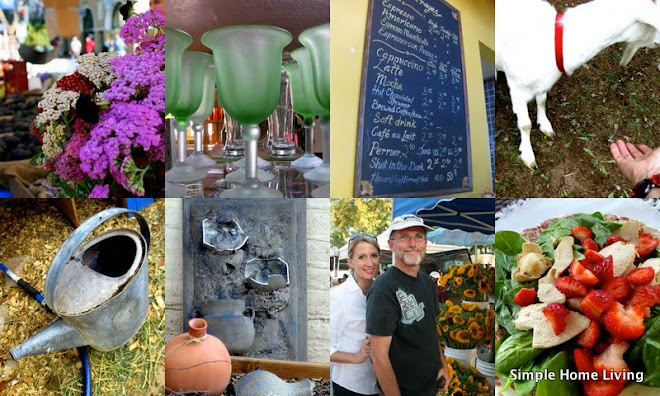If you can't garden and transfer your area into what's edible, then at least consider shopping at your local farmers' market. Buying food local is better food, healthier food and food that hasn't cost a gazillion barrels of petroleum to get to your table.
If you don't yet understand the value of gardening or think the adventure to a farmers' market is worth it - AT LEAST - buy organic.
The reason you want to buy as much of your produce as possible organically is because of the follow (taken from The Garden Guy: A Seasonal Guide to Organic Gardening in the Desert Southwest):
If you can't grow your own or find he organic stuff in the store, there are still some things to do that will limit your intake of dangerous chemicals. Here are tips and information about some of the produce at risk of being highly contaminated with chemicals:
Cucumbers: The skin holds most of the chemicals, so always peel cucumbers. In a recent survey of the most contaminated food, cucumbers were 12th worst out of 42 common vegetables.
Strawberries: The farther away from the strawberry patch, the more chemicals growers have to spray to make the berry last. Try to buy locally grown berries. And don't forget to rinse your strawberries under cool, running water before eating.
Spinach: The chemicals used on spinach can interfere with hormone production and might even cause cancer. Because chemicals can get trapped in dense leaves, carefully wash each and every leaf under cool, running water.
Apples: More pesticides are used on apples grown in the United States than almost any other fruit or vegetable. Even after washing them, always peel your apples.
Cantaloupes: These melons often contain 5 of the longest-lasting chemicals, some of which are banned, but still can be found in the soil. Before cutting, wash the outside of the melon - putting a knife through the unwashed rind will contaminate the part you eat.
Grapes: These ripen so fast that mold ends to become the growers' largest problem. To solve this problem, growers and transporters spray 17 chemicals to help preserve the grapes. Always wash grapes under cool, running water before eating. Note: Never buy grapes grown outside the United States. Other countries, especially Chile, use a lot of incredibly harsh chemicals.
Green Beans: There are more than 60 types of pesticides that growers use on green beans. If possible, grow your own. If you do need to buy them, always buy fresh beans and don't forget to wash them thoroughly.
Warning: Broccoli, watermelon, green onions, plums and bananas usually contain the most harmful chemicals.
Good News: Avocado, sweet corn, onion, sweet potatoes and cauliflower are usually the least chemically harmful.
Darling daughter and three awesome grandkiddos picked these on Monday from a local source. 50 cents a pound. Amazing!








0 comments:
Post a Comment